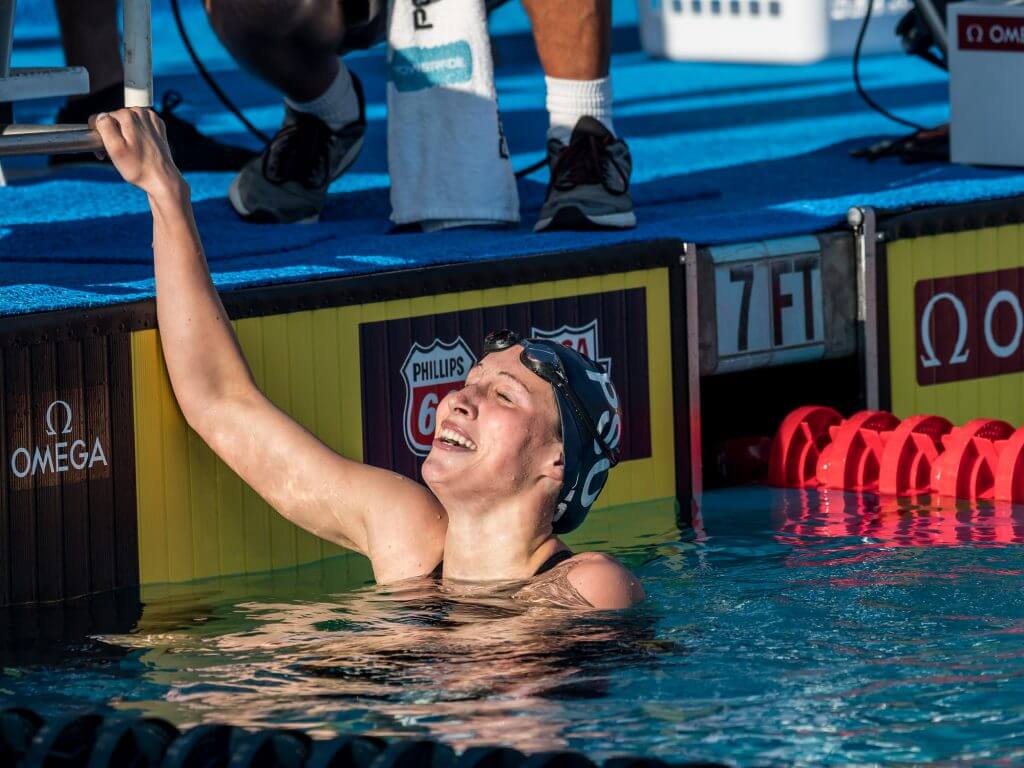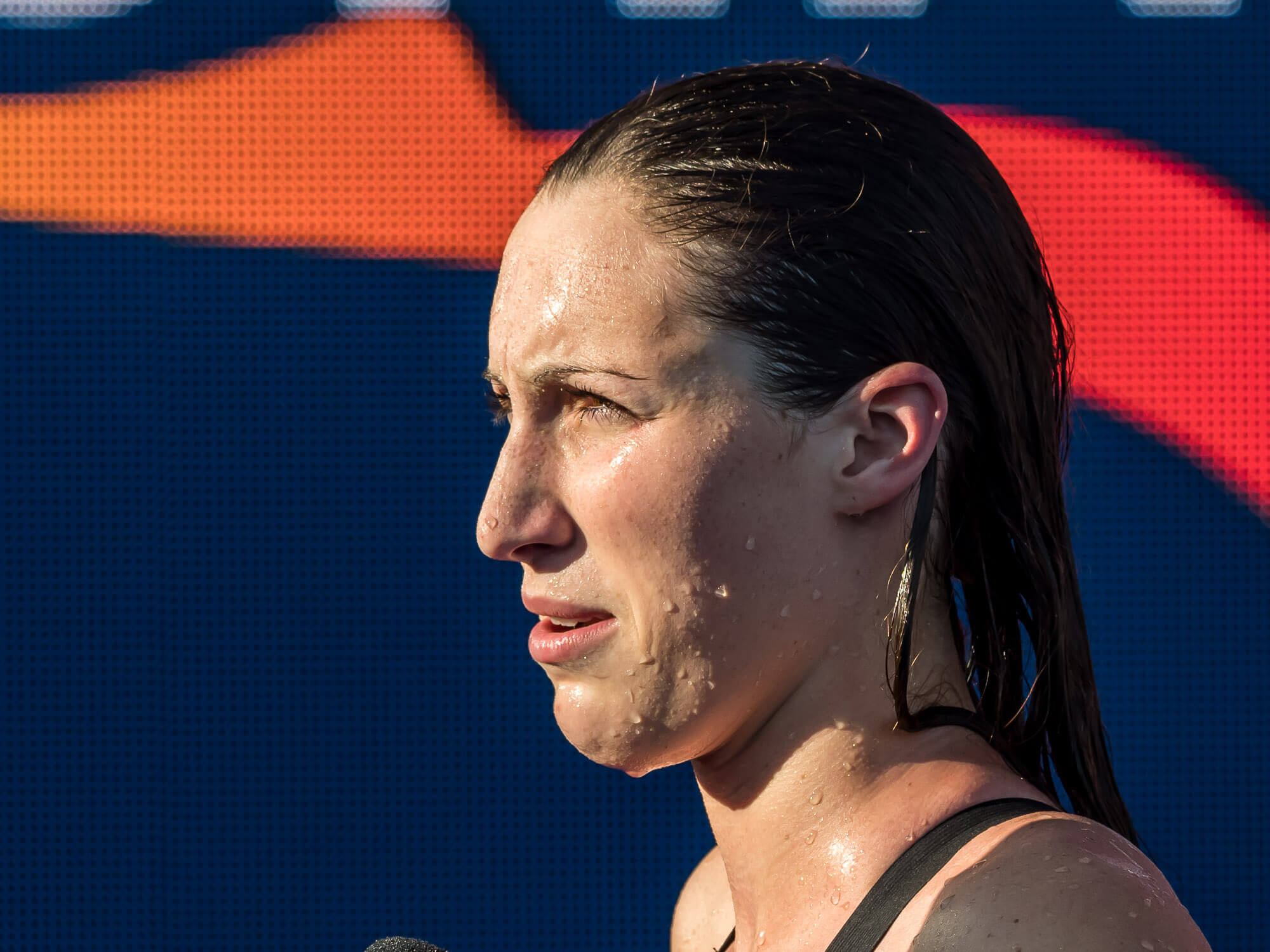Revisiting the Biggest Shocker of U.S. Nationals: Ally McHugh’s 400 IM

By David Rieder.
For a week at Nationals filled with unexpected results, no result was more shocking than the women’s 400 IM, where Ally McHugh, best known for her abilities in distance freestyle, touched first, and Brooke Forde came in second, leaving Olympians Melanie Margalis and Leah Smith in the dust.
The times were world-class, with McHugh’s 4:34.80 good for second in the world this year. For some perspective, McHugh entered the day with a lifetime best of 4:40.22, swum on her way to silver at the 2017 World University Games, before dropping to 4:39.67 in prelims. Then came her magnificent finals race, a five-second time drop and a trip to the Pan Pacific championships.
Almost no one saw it coming. One of the few exceptions was, to no surprise, McHugh’s coach, Penn State’s Tim Murphy. Murphy knew that if she could keep in contact on the first 200 while staying in control, she would have the breaststroke and freestyle to close.
McHugh’s freestyle abilities are no secret—most recently, she was second to Katie Ledecky in the 1650-yard free at the NCAA championships, and she also earned a silver in the 1500 free at the World University Games. Already at Nationals, she had finished fourth in the 800 free in 8:24.22.
“She was a tenth off Katie Ledecky’s back 400 in the 800,” Murphy pointed out. “She literally had the fastest last 200 in the field.”
Her breaststroke? She once had an Olympic Trials cut in the 200 breast. “It’s not awesome,” Murphy said of McHugh’s breaststroke, “but it’s always been solid.”
So in that Nationals final, when the field turned from backstroke to breaststroke, when McHugh was in fifth place and just seven tenths out of second, Murphy knew she had a shot. Indeed, when the breaststroke leg began and the field began to spread itself out, McHugh stayed on the pace.

Photo Courtesy: Peter H. Bick
Here’s what McHugh does not have: power. In the short course yards version of the 400 IM, strong walls and underwater dolphin kicks have become essential. Given McHugh’s deficiencies in those areas, she has a hard time keeping up at the national level. She finished 17th in the event at this year’s NCAA championships, owning a season-best time of 4:06.43. In comparison, Forde finished fourth at NCAAs in 3:59.34.
Coaches often speak of negative splitting each stroke as an ideal strategy for the 400 IM, and that works for McHugh because she has the natural endurance to not tail off where her competitors might in the grueling long course version of the 400 IM.
In the Nationals final, McHugh turned second after breaststroke, only to see Smith run her down and pass her on the first 50 of freestyle. But as Murphy put it, “We know what Ally can finish with. She’s shown that consistently.”
Indeed, McHugh was the only swimmer to crack 30 seconds on the last lap. It wasn’t that she held back—she just has what Murphy described as “a really good ability to maintain her speed and race and maybe not do too much, maybe not spin her wheels.”
It all worked out. McHugh had her breakthrough moment, and Murphy got to witness a validating win for the Penn State swimming program and a race that he will never forget.
“I said to her after the race, ‘Ally, you now should know that if you keep yourself in the race, that you can race with anybody.’ And then I paused because I was going to say ‘country,’ and then I said, ‘anybody in the world,’” Murphy said. “And she proved that. And man, that was fun to watch.”



